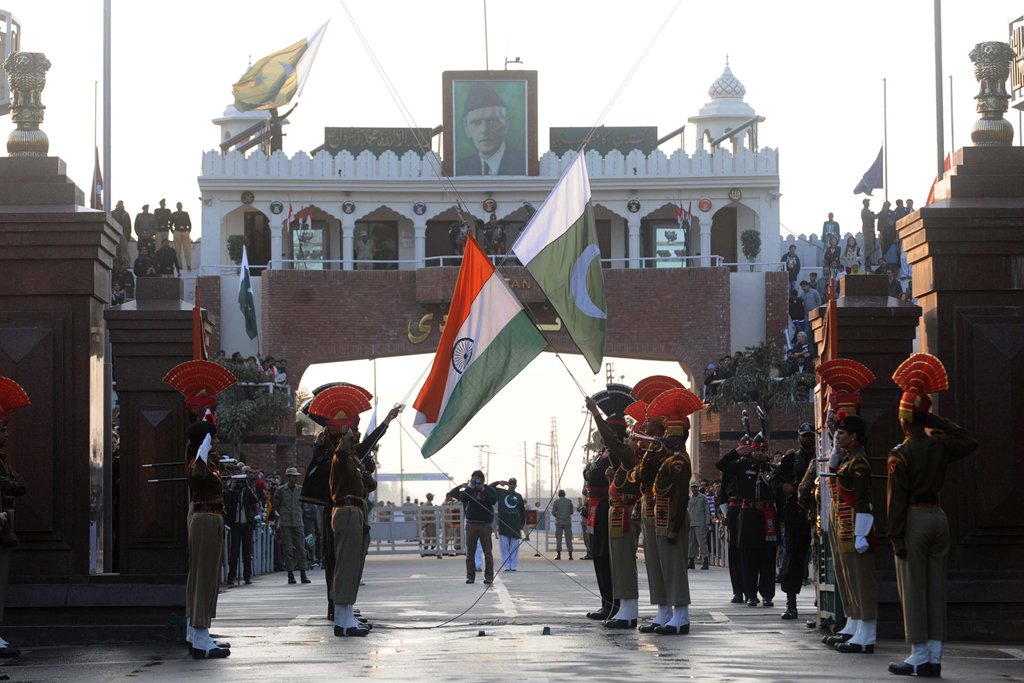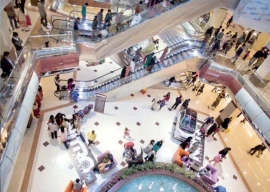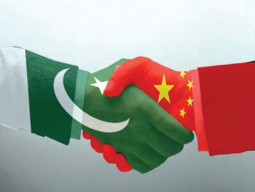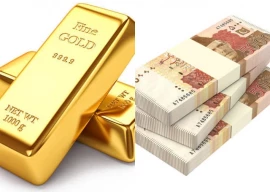
India gave Pakistan the Most Favoured Nation (MFN) status in 1996. Yet Pakistan’s exports to India have been pitiful, around $300 million, while Indian exports have been 5 times higher, clocking in at $1.6 billion. This has happened despite Pakistan not giving India the MFN status.
Now we want to give Non-Discriminatory Market Access (NDMA) to India and yet say that exports would rise. Not at least till India removes the non-tarrif and technical barriers to trade.
Let’s be clear that Pakistan is clearing the road for Indian imports and not, in the true sense, bilateral trade. Why should Pakistan want that? Why should the country offer its markets without having the ability to gain an entry into India’s? In the 80s and even early 90s, it would have made eminent sense as Pakistan’s per capita income was higher than India’s while per capita production was at par.
Now India is miles ahead and moving further, while Pakistan is floundering. UNCTAD’s 2008 survey states that India has a track record of being the most prolific user of anti-dumping remedies. Their overall Trade Restrictive Index is 46.7, while Pakistan’s is 22.2.
Let’s talk about the automotive industry, which has a profound impact on economy because of its backward and forward linkages, employment capability and technical prowess. India has protected it well as they, proudly, announced during a recent conference I attended. Their custom levy on new built-up vehicles is higher than Pakistan’s and even higher on used vehicles. Malaysia has included the automotive industry in its manufacturing ++ industries. It has been called the mother industry as well as the “Industry of Industries” by no less a person than Peter Drukker, the famous management guru.
India has done well to understand this and protected it in all the Free Trade Agreements signed, even the latest one with the EU. No built-up, new or used vehicles, are allowed easy access to its market.
The transport engineering department of India has 1,085 standards of which 554 pertain to auto and parts — we have none. They have a process of testing before allowing anything in, which is time consuming and is called homologation. Pakistan does not have any facilities with the Pakistan Standards and Quality Control Authority (PSQSA) to carry out any homologation in the country. India also has a robust licencing arrangement for allowing vehicle import.
They have emission standards, Bharat 3 & 4, which are unique and more challenging than Euro 3 & 4. Pakistan is still at Euro 2 only in petrol and zero in diesel. Hence, access to their market is obviously denied unless Pakistan improves its standards.
Why we are at such a low level is because our fuel is not good enough for higher levels. The refineries must invest to deliver better fuel. It is obvious that Pakistan needs to have better standards, testing equipment and regulation before we allow access to our automotive market — both National Tariff Commission & PSQSA’s capability has to be substantially enhanced. India is a member of the UN WP29 Agreement of 1998 which does not compel it to accept a third country’s testing as the Agreement of 1958 did, of which India is not a member. India, thus, does not allow mutual recognition. Their standards are unique and they would like Pakistan to adopt their standards. India has dexterously done its homework.
To top it all, Pakistan is considering opening the Wagah border for all items. Currently, only 137 products can come through. This will make Pakistan and India one market and foreign direct investment would naturally flow into India because Pakistan is besieged with insecurity. What a loss that it will be? Under invoicing, mis-declaration and dumping will be carried out abundantly, especially if import is through Wagah. Wagah must not be opened up. It will be disastrous.
The way forward
Let the automotive associations in both countries talk to each other and finalise the modality of business, leading to managed trade along the lines of Mercusor Agreement on automotive trade between Argentina and Brazil or the agreement between US and Canada.
To make ourselves competitive, raw materials, machinery, tooling and technology may be made available from India as the first step. To improve competitiveness, joint ventures in Pakistan or investment by Indian firms in Pakistan may also be allowed. With the low value of Pakistani currency and labour cost, they may make products cheaper in Pakistan.
Let India play the role of the big brother and give more leeway to Pakistan like reducing the Pakistan sensitive list to 300 for the time being, while India reduces it to 100. Allow Pakistan time to get more competitive and then remove lines progressively.
The writer is Paapam’s first chairman and is closely associated to the auto industry
Published in The Express Tribune, March 10th, 2014.
Like Business on Facebook, follow @TribuneBiz on Twitter to stay informed and join in the conversation.
COMMENTS (15)
Comments are moderated and generally will be posted if they are on-topic and not abusive.
For more information, please see our Comments FAQ

















Mr. Sohail, In business or international relations, no one acts like 'big brother'. Everyone is out there for themselves. Do you think 'big brother' India will give you Kashmir on a platter?
@someone: This is economy stupid talking big brothers and little brothers stuff Big brothers do not attack and occupy the other brothers lands and resources. India has been always been trying to squeeze the least benfit from neighboring, without being a reciprocating parter. taking from one hands and snatching with the other hands is typical to Indians. most touted MFN are the no where near to any fair trade deal.
@Gp65: BIG BROTHER !!!! That is the reason, that I personally am against ANY relation with India. That is more attitude than business.
We dont trade with Muslims, we only sell to them.
@S: Well what you need to understand is that business is give and take transaction. What author is asking is that first India make Pakistan able enough to do business with it. Don't you find it hilarious?
@Sadaf totally agree with you.
One can see the indian comments here and see their sinceirty. And this is what we need to understand.
@Sadaf: See you guys always have had big "Daddys". I think a big "bother" won't hurt much.
Much like the Chinese, we Indians are only interested in selling, not buying. And that is the honest truth.
How hilarious one can be. So India should act as a big brother and provide crutches for little brother while little brother would do all sort of mischief in the name of non state actor etc. I wonder if there is any shame left within Pakistan society or not.They keep claiming how India should treat them as equal and in the same breathe they ask for concessions. This is what should happen. Because Pakistan has failed in providing MFN to India as duly required, India should drag Pakistan in every International trade organization and force it to provide MFN.
The article is a attempt to garner support from the public at large to put pressure and dissuade Pakistani govt. to allow India Non discriminatory Market Access.. Auto Industry continues to enjoy protection without an attempt to improve the quality.
No country will do charity to another. Pakistan's poor standards and processes are highlighted only when MFN issue has popped up else no one bothered to highlight this. Darwin's theory suits best here for Pakistan - change yourself and adapt to situation or you will perish. Again no one will do charity to change you.
Pakistan had promised to ive MFN status to India in 2011 in lieu of India waiving its objection o Pakistan specific trade waivers by EU. India did its part and Pakistan has yet to do its part. All the points you mentioned should have been considered when Pakistan made that offer to India in 2011. After taking advantage of India's yielding on EU trade benefits, its unethical to o back on your commitment.
India is already behaving like a big bryher by not dragging you to WTO for failure to provide it MFN status - which is mandatory obligation of Pakistan to remain WTO compliant. To expect unending unilateral giveawys by India is unreasonable.
Remember, it is Nawaz Sharif and Shahbaz Sharif who have been talking about improving trade. That cannot happen without Pakistan showing that it is willing to honour its commitments.
Further, the reason Pakistan's exports o India are low has little to do with India's policy and a lot to do with the lack of diversity of Pakistan's industrial base. Since India itself exports most of the items that are part of the Pakistan's export basket e.g. Food products and textile products, obviously it does not import these items from Pakistan. It would be willing o import cotton but Pakistan is unwilling to export that to India.
One more issue which you have chosen not to write about is the fact that around 10 billion worth of Indian goods reach Pakistan via Dubai/Singapore. This leads to markups and Pakistani consumer unnecessarily pays a higher price. Allowing the same goods direcly will show increase in reported exports from India without in any way actually benefitting India. It is Pakistani consumers who will benefit from the lower costs.
Mr so hail, we don't India or any other country to act as 'big brother' to us. Time to stand on our own two feet.
To improve competitiveness, joint ventures in Pakistan or investment by Indian firms in Pakistan may also be allowed. With the low value of Pakistani currency and labour cost, they may make products cheaper in Pakistan.
The Art of living centre in Islamabad was set afire yesterday. That would definitely make Indian companies so much more confident to invest in Pakistan
Source: NDTV